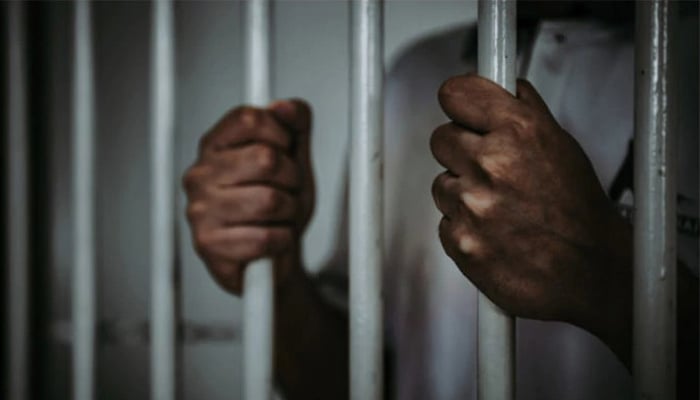Incarcerated with mental illness: Pakistan’s top court offers new hope
The Supreme Court's Feb 10 judgment is a historic one as the apex court has for the first time recognised mentally-ill prisoners' plight
February 15, 2021

On February 10, the Supreme Court of Pakistan passed an order staying the executions of two mentally-ill prisoners on death row, Kanizan Bibi and Imdad Ali, recommending their death sentences be commuted to life imprisonment instead.
The judgment is a historic one as the apex court has for the first time recognised the plight of mentally-ill prisoners. Not only that, in its order, it has issued directions for improvements in jails as well as in the governing laws.
As per official figures, over 600 prisoners are suffering from a mental health disorder in Pakistan.
In the recent judgment, the Supreme Court directed that the outdated and derogatory terms — such as “lunatic” and “insane” — used in the Criminal Procedure Code 1898, Pakistan Prison Rules 1978, and the Pakistan Penal Code 1860 to be substituted with sensitive and inclusive terms such as “mental illness” and “mental disorder”.
The Court also instructed that each provincial government amend its mental health laws to include medically-recognised mental and behavioural disorders notified by the World Health Organisation (WHO).
It further ordered the constitution of a medical board, comprising trained psychologists and psychiatrists, to assess a prisoner’s mental health.
Beyond this, the Court has also passed a direction for training all relevant stakeholders on mental illness, trial, and incarceration, as well as for the federal and provincial governments to establish forensic mental health facilities to treat and rehabilitate prisoners who have developed mental ailments during their incarceration.
The federal and provincial governments have also been directed to immediately launch training programmes on forensic mental health assessment for psychiatrists, clinical psychologists, social workers, police, and prison personnel.
In addition, judicial academies have been tasked to arrange courses for trial court judges, prosecutors, lawyers, and court staff. Such training is crucial for all stakeholders in the criminal justice system — to ensure that they understand the complexities of mental health and incarceration.
In December 2019, a working group was formed under Punjab Chief Minister Usman Buzdar's leadership to upgrade the archaic Pakistan Prison Rules 1978 for Punjab and to bring them in line with international and domestic standards.
The working group’s focus was to modernise the rules drafted in 1978, with the aim of making prisons more humane. Since each rule was in dire need of improvement, the group revisited and modified every rule.
Its proposed changes included revamping the chapter on the care of female, juvenile, and mentally-ill prisoners, as well as setting up staff training and complaint redressal. The working group noticed, in particular, that there are inadequate protections for vulnerable groups like mentally-ill persons in prison.
The working group also proposed a detailed screening process upon a prisoner’s admission to jail in order to identify any prisoners that may be at risk of illness. Prior to the proposed amendments, this screening was conducted by a medical officer alone, who was not a trained mental health professional and wasn’t qualified to screen for the presence of a mental illness.
Instead, it was suggested that a holistic screening be completed by a prison health team consisting of a psychologist, a medical officer, and a social welfare officer. Both the psychologist and social welfare officer posts are new innovations for the Prison Rules and are essential additions for the on-going mental health care of prisoners and for their reintegration into society.
The working group also proposed a chapter on staff training to include issues of gender, diversity, and mental health in the training curriculum.
At present, prison officials and other stakeholders are not trained in sensitivity issues, making it difficult for them to address and identify prisoners that may be suffering in this regard.
Other recommendations include providing sanitary napkins for females upon their admission to prison and instituting proper education programmes for prisoners, especially juveniles.
With regard to the use of language, the group also recommended that insensitive terms like “lunatic” and vague terms such as “unsoundness of mind” be removed from the rules and replaced with more inclusive words that can encompass a broader range of illness, such as “mental disorder”.
While post the Court’s order, there is a new dawn for the mentally-ill prisoners in Pakistan, the government — both at the federal and provincial level — must implement the Court’s directives as well as the recommendations of the working group.
Qadir is a lawyer at the Justice Project Pakistan and is adjunct faculty at LUMS university. She tweets @aaminahq











